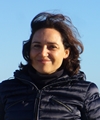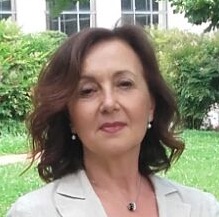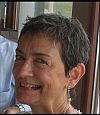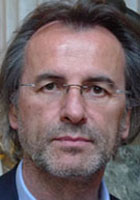Studying at the University of Verona
Here you can find information on the organisational aspects of the Programme, lecture timetables, learning activities and useful contact details for your time at the University, from enrolment to graduation.
Academic calendar
The academic calendar shows the deadlines and scheduled events that are relevant to students, teaching and technical-administrative staff of the University. Public holidays and University closures are also indicated. The academic year normally begins on 1 October each year and ends on 30 September of the following year.
Course calendar
The Academic Calendar sets out the degree programme lecture and exam timetables, as well as the relevant university closure dates..
| Period | From | To |
|---|---|---|
| Sem. IA | Sep 28, 2015 | Nov 8, 2015 |
| Sem. IB | Nov 9, 2015 | Jan 17, 2016 |
| Sem. IIA | Feb 22, 2016 | Apr 24, 2016 |
| Sem. IIB | Apr 25, 2016 | Jun 5, 2016 |
| Session | From | To |
|---|---|---|
| Sessione Estiva | Jun 6, 2016 | Jul 31, 2016 |
| Sessione Autunnale | Sep 1, 2016 | Sep 30, 2016 |
| Sessione Invernale | Jan 23, 2017 | Feb 25, 2017 |
| Session | From | To |
|---|---|---|
| Sesione Estiva | Jul 8, 2016 | Jul 15, 2016 |
| Sessione Autunnale (Solo Scienze del Serv. Sociale: Ven. 04/11/2016) | Nov 21, 2016 | Nov 26, 2016 |
| Sessione Invernale | Apr 3, 2017 | Apr 8, 2017 |
| Period | From | To |
|---|---|---|
| Festa di Ognissanti | Nov 1, 2015 | Nov 1, 2015 |
| Festa dell'Immacolata | Dec 8, 2015 | Dec 8, 2015 |
| Vacanze Natalizie | Dec 23, 2015 | Jan 6, 2016 |
| Vacanze Pasquali | Mar 24, 2016 | Mar 29, 2016 |
| Festa della Liberazione | Apr 25, 2016 | Apr 25, 2016 |
| Festa dei Lavoratori | May 1, 2016 | May 1, 2016 |
| Festa del S. Patrono S. Zeno | May 21, 2016 | May 21, 2016 |
| Festa della Repubblica | Jun 2, 2016 | Jun 2, 2016 |
| Vacanze Estive | Aug 8, 2016 | Aug 15, 2016 |
Exam calendar
Exam dates and rounds are managed by the relevant Humanistic Studies Teaching and Student Services Unit.
To view all the exam sessions available, please use the Exam dashboard on ESSE3.
If you forgot your login details or have problems logging in, please contact the relevant IT HelpDesk, or check the login details recovery web page.
Should you have any doubts or questions, please check the Enrollment FAQs
Academic staff
 donato.desilvestri@univr.it
donato.desilvestri@univr.it
 linda.napolitano@univr.it
linda.napolitano@univr.it
 annamaria.piussi@univr.it
annamaria.piussi@univr.it
 cristina.richieri@univr.it
cristina.richieri@univr.it
Study Plan
The Study Plan includes all modules, teaching and learning activities that each student will need to undertake during their time at the University.
Please select your Study Plan based on your enrollment year.
1° Year
| Modules | Credits | TAF | SSD |
|---|
2° Year activated in the A.Y. 2016/2017
| Modules | Credits | TAF | SSD |
|---|
| Modules | Credits | TAF | SSD |
|---|
| Modules | Credits | TAF | SSD |
|---|
| Modules | Credits | TAF | SSD |
|---|
Legend | Type of training activity (TTA)
TAF (Type of Educational Activity) All courses and activities are classified into different types of educational activities, indicated by a letter.
Pedagogical hermeneutics (2015/2016)
Teaching code
4S000562
Teacher
Coordinator
Credits
9
Language
Italian
Scientific Disciplinary Sector (SSD)
M-PED/01 - PEDAGOGY, THEORIES OF EDUCATION AND SOCIAL EDUCATION
Period
Sem. IIA, Sem. IIB
Learning outcomes
General formative aim
The general formative aim of the pedagogic hermeneutics teaching, within the Pedagogic Science Degree, consists in going deep into the meaning of education. Education is considered an important experience of “interpretation”, preceded and followed by a similar interpretative experience, which is common in every pedagogical theorization. Hence, the educator, that works on education and thinks on pedagogical terms, needs to deepen the hermeneutic theme and its historical-philosophical branches.
Education may be thought about as an interpretative experience: that explains the existence of this discipline, which finds its collocation among education, pedagogy and philosophy. This is the disciplinary site where also “philosophy of education” has begun to exist: pedagogical hermeneutics is a particular branch and a specific knowledge of it.
The general formative aim of the course is of an essentially cognitive and reflexive nature, because the educator and the pedagogist must pay attention to the “interpretative” aspect - either at the moment of the educational planning or at the end of the educational action – and its cognitive relevance, with particular regard to the role of the interpreting subject.
Educational objectives
Based on this general formative aim, here are some specific formative objectives. They are expressed as results of what has been learnt.
- First formative object: knowledge and comprehension of education as “experience of interpretation” that is of the importance of hermeneutics, of its history and its more significant theories. That requires the knowledge of philosophic hermeneutics (not only philosophic) and its redefinition in pedagogical terms. At the end of the course the student will have a sufficient knowledge of the hermeneutic contents and will be able to contextualize them in the hermeneutic history with particular regard to the most important authors.
- Second formative object: the methodological and operating capacity of reading the educational relation in general and any educational problem in particular, from the hermeneutic point of view. At the end of the course the student will be able to unify every new piece of knowledge within his/her own personal culture and to make professional application of it.
- Third formative object: the capacity to identify the more suitable hermeneutic model to interpret the educational experience, without changing its fundamental characteristics. In that way, at the end of the course the student will be able both to enrich his/her own models of research and action, and to autonomously evaluate the cognitive possibilities and also the hermeneutic limits, seen in a pedagogic point of view.
- Forth formative object: the improvement of the linguistic and communicative capacities, enriched by the general hermeneutic conceptual problematic heritage, and by pedagogical hermeneutic in particular. At the end of the course the student will be able to integrate his/her own educational language with what comes from the hermeneutic part.
Program
Programme
Contents
The course will mainly deal with the following topics.
Principal contents of the general part:
- education as a hermeneutic problem;
- elements of hermeneutic history: from classic age to Schleiermacher and Dilthey;
- nineteenth Century hermeneutics: Heidegger, Gadamer , Betti and Ricoeur;
- two different trends of Italian hermeneutics in nineteen Century: Pareyson and Vattimo;
- from the historic-philosophic thinking to the hermeneutic reflection on the educational practice;
- the pedagogic hermeneutics and other pedagogical paradigms of thought;
- the pedagogical hermeneutic as “applied” hermeneutic.
Principal contents of the ”monographic” part (of the developing part of the course):
- the hermeneutics as “cognitive method” in educational and pedagogical problems;
- the hermeneutics as “cognitive experience” of truth, also looked for and tested through the interpretation of the own mistakes.
Teaching methods
Lessons will be frontal in the main, with the possibility to intervene with questions and short debates related to the themes of the day.
Examination Methods
Texts for the exam
The following texts are mandatory for everybody:
- D. Loro, Interpretare l’educazione. Introduzione all’ermeneutica pedagogica, Verona, ed. Libreria Cortina Editrice, 2016.
- E. Borgna, Il tempo e la vita, Milano, ed. Feltrinelli, 2015.
For the methodological part, is mandatory the lecture notes; it’s possible to choose one of three other texts, that will be object to hermeneutics exercises.
- D. Loro, L’ermeneutica pedagogica come “ermeneutica applicata”. Elementi metodologici e operativi, Lecture notes 2015-2016 (The lecture notes will be available at the end of the course by the bookshop Ateneo, Lungadige Porta Vittoria, 37. www.ateneovr.it).
- S. Chialà, Parole in cammino. Testi e appunti sulle dimensioni del viaggio, Magnano (Biella), ed. Qiqajon, 2006, seconda ristampa, 2011.
- M. Ende, Momo, Torino, ed. SEI, 2011, 6° ristampa 2014.
H-G. Gadamer, Educare è educarsi, ed. Genova, ed. il Melangolo, 2014.
Exam methods
Students will be examined in the oral form, following the line of their entry to the exam. They will be assessed according to their level of learning what it is expected in the specific formative objectives.
They are asked to answer questions, of different types: descriptive (to show the knowledge of the contents), argumentative (to show the capacity of associating concepts and of reflection ),applicative (to show the ability of concrete and active thinking on the theoretical contents).
Students enrolled in previous years must prepare their exam on the programme of the current academic year, except for those who previously communicate to their teacher (who is expected to give the last decision) their serious reasons for not doing so.
This is scientifically and didactically correct for some reasons:
- to assure the link between the programme of the exam and the academic year in which the student takes the exam,
- it is required by the “diploma supplement”;
- Each year the programme of the course is deepened and updated in its contents with regard to those of the previous years.
Type D and Type F activities
Modules not yet included
Career prospects
Module/Programme news
News for students
There you will find information, resources and services useful during your time at the University (Student’s exam record, your study plan on ESSE3, Distance Learning courses, university email account, office forms, administrative procedures, etc.). You can log into MyUnivr with your GIA login details: only in this way will you be able to receive notification of all the notices from your teachers and your secretariat via email and soon also via the Univr app.
Student mentoring
Graduation
Documents
| Title | Info File |
|---|---|
|
|
pdf, it, 99 KB, 13/10/23 |
|
|
pdf, it, 101 KB, 10/04/24 |
List of theses and work experience proposals
| theses proposals | Research area |
|---|---|
| Psicoanalisi | Psychology - Psychology, Psychoanalysis |
Gestione carriere
Linguistic training CLA
Practical information for students
Documents
| Title | Info File |
|---|---|
|
|
pdf, it, 325 KB, 02/05/23 |
|
|
pdf, it, 212 KB, 02/05/23 |
|
|
pdf, it, 131 KB, 02/05/23 |
Stage e Tirocini
Per le altre attività formative (crediti F) sono previsti 9 cfu (pari a 225 ore) da acquisire solamente attraverso l’attività di tirocinio obbligatoria, a sua volta suddivisa in:
- tirocinio indiretto (1 cfu: 25 ore di frequenza obbligatoria in università per il 75%) in preparazione dell’attività formativa sul campo;
- tirocinio diretto (8 cfu), da svolgersi presso enti convenzionati.
L’ordinamento didattico della LM in Scienze pedagogiche prevede che il tirocinio indiretto a frequenza obbligatoria si svolga in università per il 75% nel secondo anno (1 CFU: 25 ore).
Il tirocinio indiretto consiste in un accompagnamento iniziale delle/degli studenti da parte dei tutor attraverso un percorso di formazione della durata di 25 ore.
La finalità di questo percorso è quella di preparare le/gli studenti alla particolare forma di apprendimento costituita dal tirocinio, dotandoli di conoscenze e strumenti adeguati a osservare, comprendere e rielaborare criticamente l’esperienza di tirocinio nei servizi educativi e ad affrontare il tirocinio negli enti con metodo e consapevolezza.
Il percorso, da attuare in gruppi da 20-25 persone sotto la supervisione di un tutor proveniente dal mondo professionale di educatori e pedagogisti, risponde alle esigenze costantemente espresse sia dalle/dagli studenti stessi sia dalle parti sociali che dai referenti degli enti convenzionati.
Nuove Linee Guida per il tirocinio di Scienze pedagogiche.
- Tutte le informazioni in merito agli stage per futuri studenti sono disponibili alla pagina Stage e tirocini.
- Tutte le informazioni in merito agli stage per studenti iscritti sono pubblicate in MyUnivr - come fare per - stage e tirocini.
- Tutte le informazioni in merito agli stage per le aziende sono disponili alla pagina Stage e tirocini per azienze.

 0458028142
0458028142

















